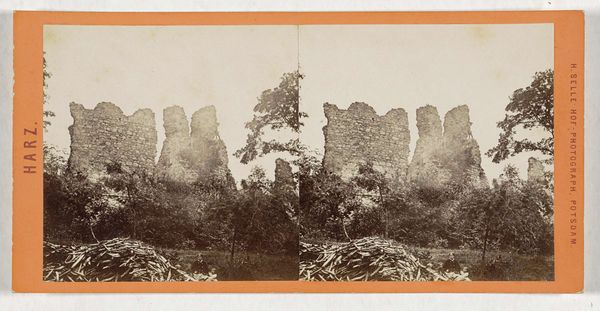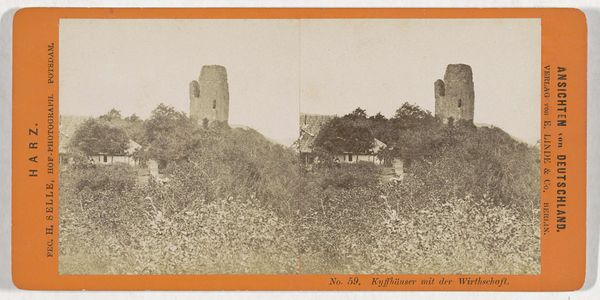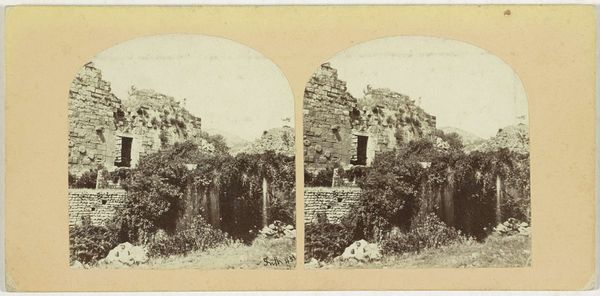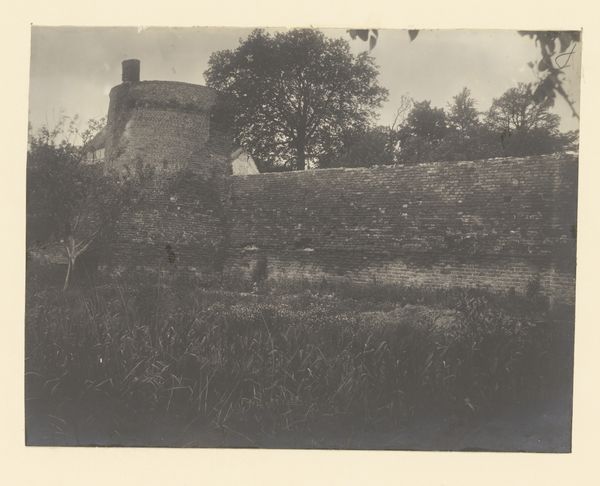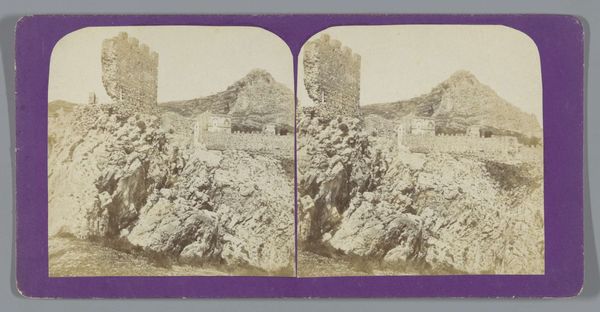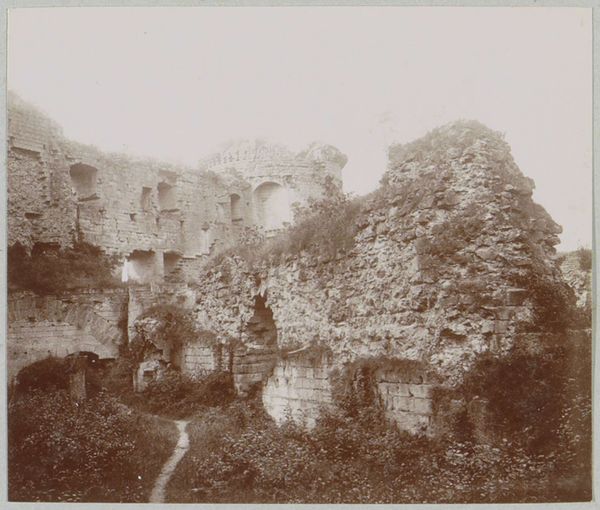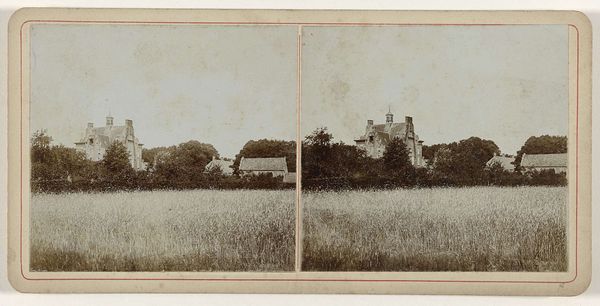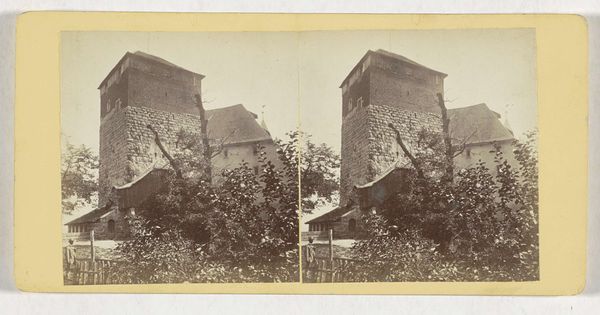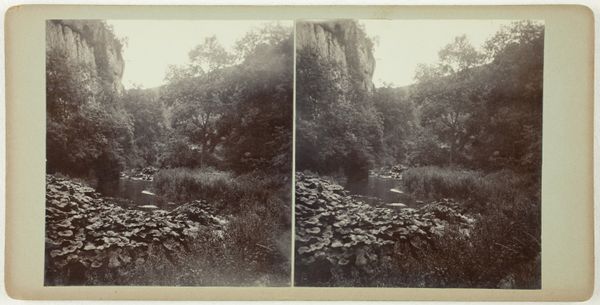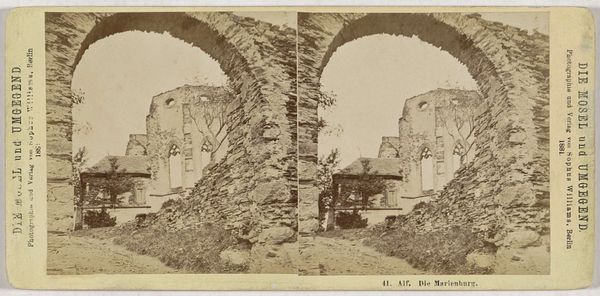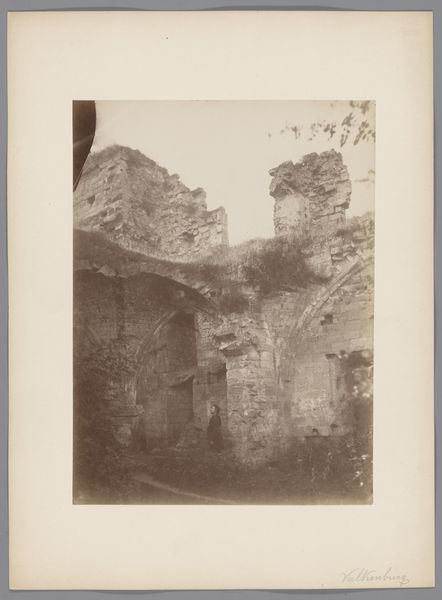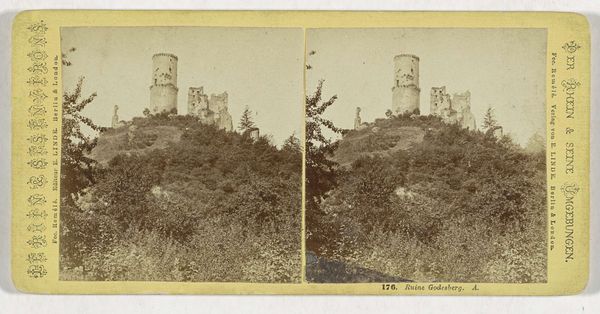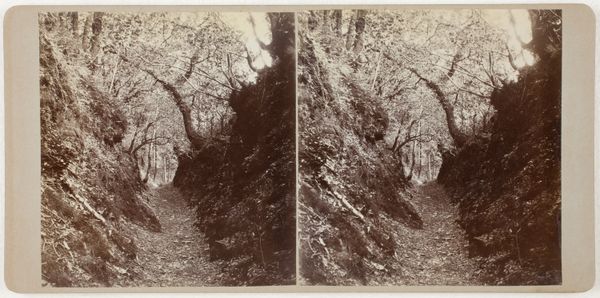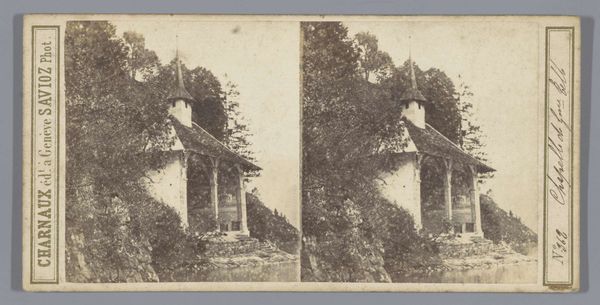
Dimensions: height 87 mm, width 176 mm
Copyright: Rijks Museum: Open Domain
This stereoscopic image shows the ruin of the Kyffhausen castle chapel, captured by Hermann Selle. The crumbling stone walls, standing amidst nature, present a potent symbol: ruin. The ruin motif is steeped in historical and cultural significance. Throughout the Renaissance, artists like Ghirlandaio in his ‘Adoration of the Shepherds’ incorporated classical ruins to signal the death of the pagan world with the advent of Christianity. Similarly, Northern Renaissance masters imbued ruins with the concept of ‘vanitas’, signifying the ephemeral nature of earthly achievements, as seen in the works of Pieter Bruegel the Elder. Here, Selle evokes the Romantic era's fascination with ruins, triggering a deep, perhaps subconscious, meditation on time, decay, and the transience of human endeavor. The image resonates with our collective memory and the powerful emotional charge associated with the passing of civilizations, reminding us of the cyclical nature of history, where all grandeur eventually succumbs to the forces of time.
Comments
No comments
Be the first to comment and join the conversation on the ultimate creative platform.
